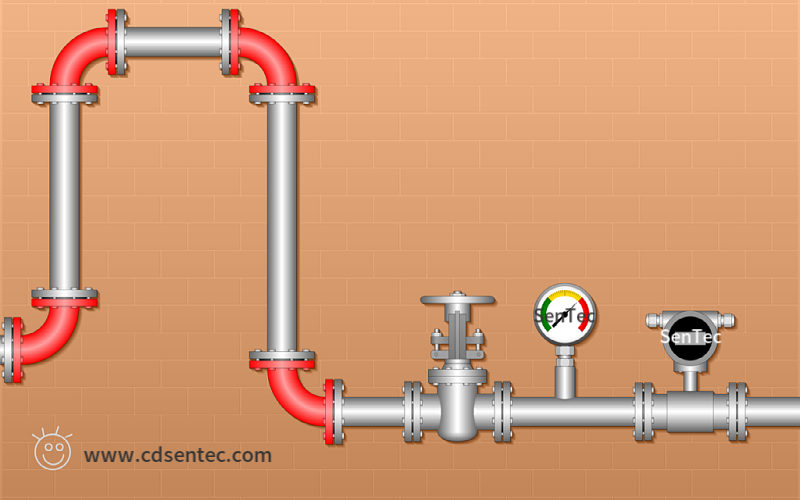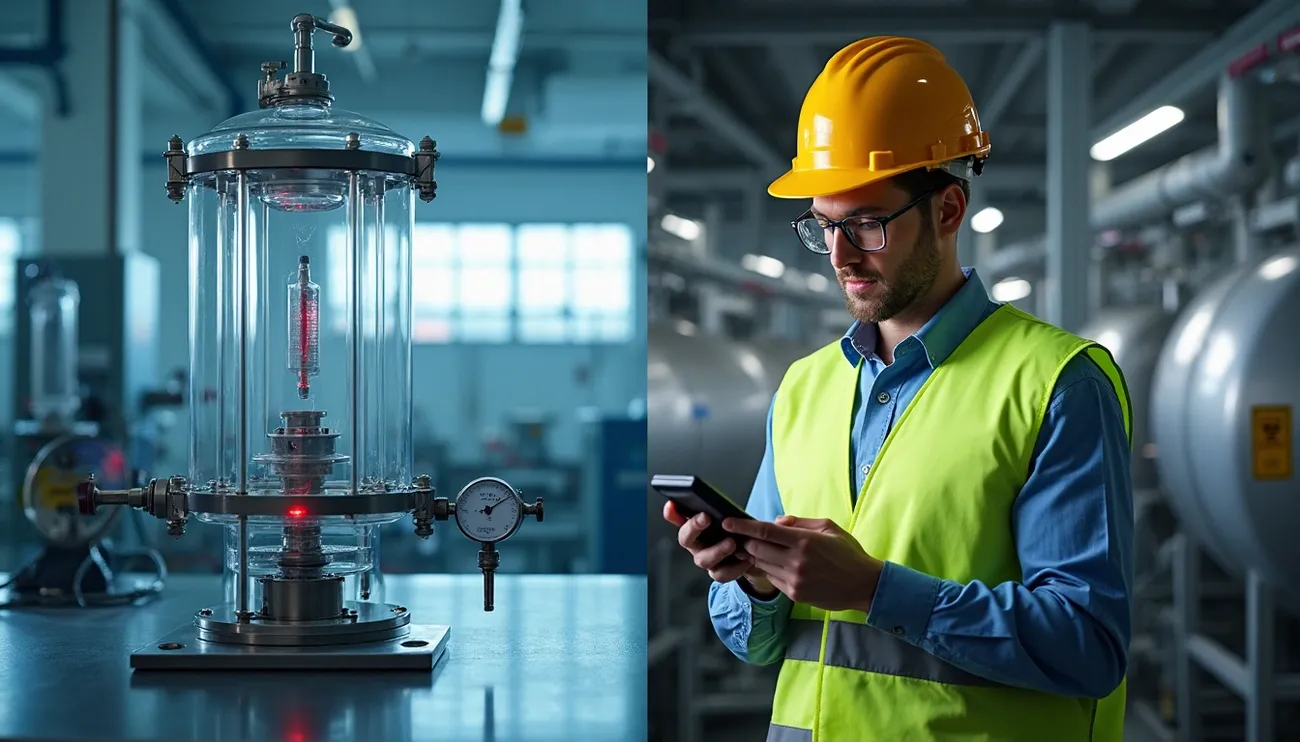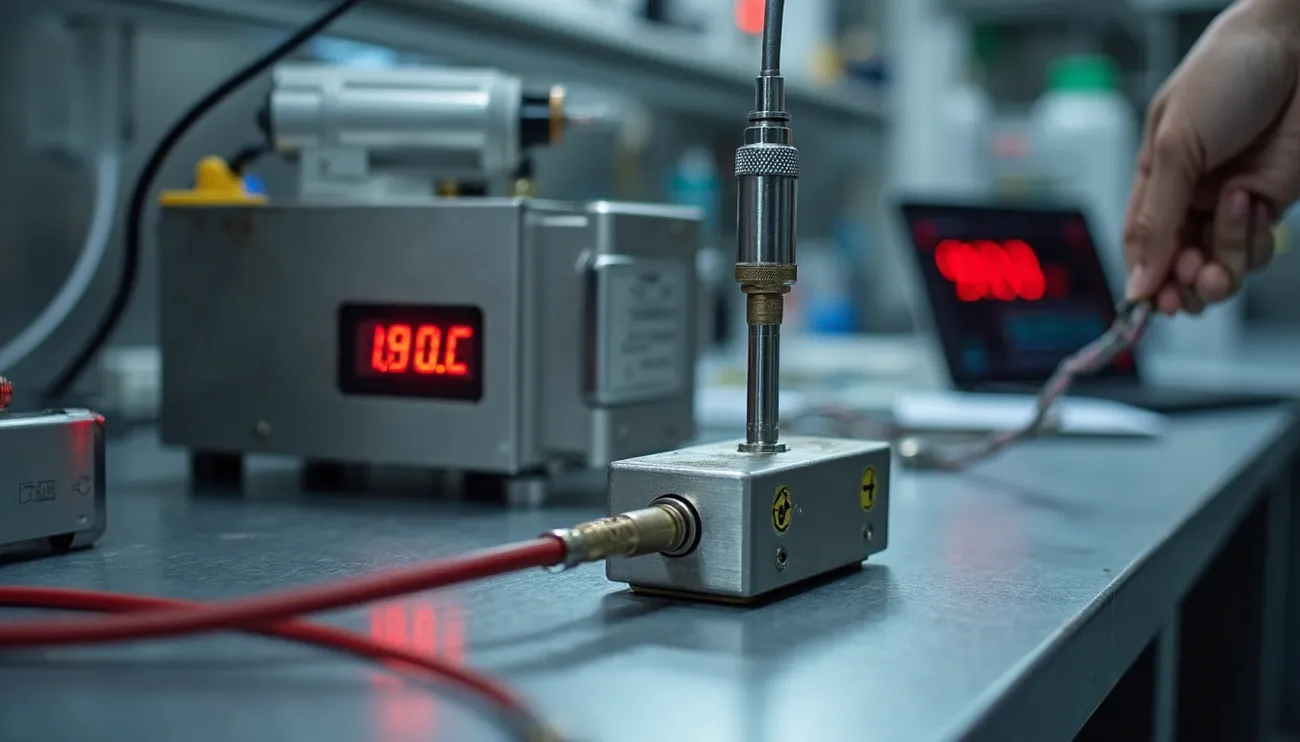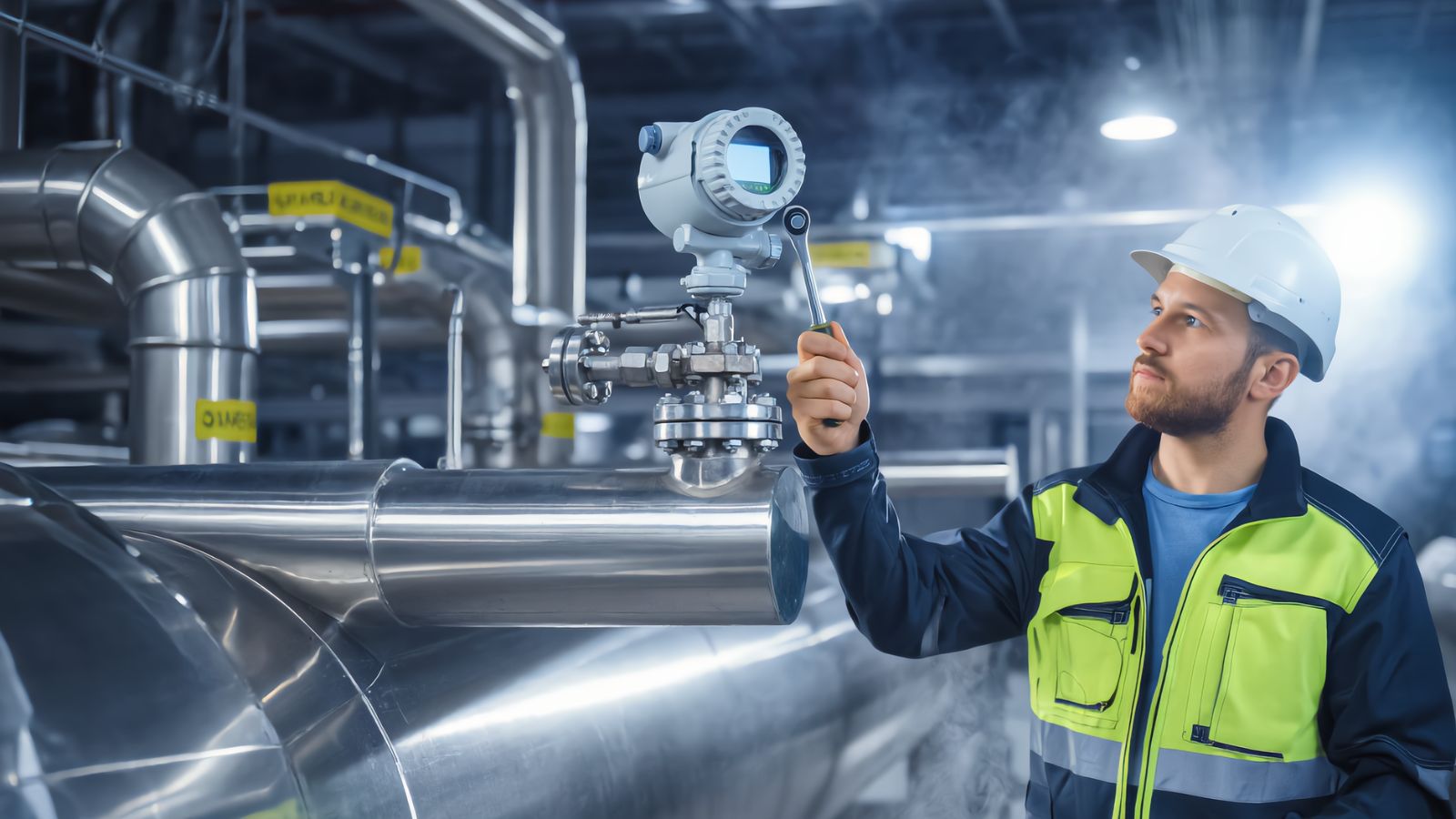The digital chemical flow meter refer to flow meters that measure both corrosive and non-corrosive gas and liquid passing through them.
What is Chemical Flow Meter ?
A chemical flow meter is a specialized device designed to measure the flow rate of chemicals in a precise and reliable manner. It is typically installed in pipelines or tanks where the flow of liquids or gases needs to be monitored. These meters utilize various technologies such as ultrasonic, magnetic, or thermal principles to measure the flow rate accurately. They are capable of handling a wide range of chemicals, including corrosive substances and high-viscosity liquids, making them suitable for diverse applications in the chemical industry.

Importance of Accurate Flow Measurement in Chemical Processes
Accurate flow measurement is of utmost importance in the chemical industry due to its direct impact on the efficiency and quality of manufacturing processes. By having precise knowledge of the flow rate, manufacturers can optimize the use of chemicals, reduce wastage, and ensure consistent product quality. Additionally, accurate flow measurement allows for better process control, enabling manufacturers to make real-time adjustments to maintain optimal operating conditions.
Chemical processes often involve the precise blending of different substances to achieve the desired chemical reactions or formulations. The accuracy of these blends heavily relies on the precise measurement of the flow rate of each component. A slight deviation in flow rate can significantly impact the final product’s quality and performance. Therefore, chemical flow meters play a critical role in ensuring the accurate proportioning of chemicals, leading to consistent and reliable end products.
Furthermore, accurate flow measurement is essential for compliance with regulatory standards and safety requirements. Many chemicals used in the industry are hazardous and require careful handling. By accurately measuring the flow rate, chemical flow meters help prevent leaks, spills, or overflows, reducing the risk of accidents, environmental pollution, and financial losses.
Types of chemical flow meter
Aggressive chemical measurement-Variable area rotameter/ magnetic flow meter
Chemical industries use magnetic flow meters to facilitate the aggressive measurement of chemicals. You can use magnetic flow meters to measure corrosive chemicals like hydrochloric acid, sulphuric acid, caustic soda, and brine. However, only magnetic flowmeters that have suitable electrodes and liners are efficient in measuring such corrosive liquids. Additionally, you can also measure the aggressive chemicals/fluids using digital rotameters that are lined with PTFE (Teflon),magnetic flow meter is a kind of digtial chemical flow meter with 4-20mA analog outputs and pulse output, it also has digital display to show flow total flow and instant flow.
Low corrosive, low viscous and clean liquid measurement –Turbine flow meters (TUF)
These are flow meters that measure liquids that are clean, less viscous, and less corrosive. Such fluids include solvents, solutions, ethanol, diesel, and clean water. Turbine flow meters are less expensive and usually have chemical flow sensors that have a compact design. These flow meters are volumetric, meaning that they can measure liquids passing through them either indirectly or directly. Some of the advantages of using turbine flow meters are that they have high accuracy, can measure high pressure, and have a large measuring range.
Low flow rate chemical flow meter –Rotameter or micro type oval gear flow meter
A rotameter measures the flow rate of a gas or a liquid. It comprises a measuring scale, float, and a tube. A low flow rate rotameter detects a minimum/low flow rate in a liquid/gas. In this category of rotameters, we supply a rotameter known as the metal tube. The tube in the metal tube is usually tapered and has indicators. The function of the indicator is to display the measuring results after measuring. These tubes also have pulse output/4-20Ma transmitters, which facilitates control. Rotameters are cost-effective since they are easy to construct. Therefore, using them helps to save costs. They also have a small design hence portable.
Micro oval Gear flow meter can detect ultra mini chemical flow, It is a kind of positive displacement flow meter for precise volume flow measurement of mini or low chemical flow liquid, the liquid include chemical, sealant, toluene, glue, detergents, gelectrolyte, ethylene, additive,etc,low flow chemical flow meter.
High viscosity chemical flow meters-Coriolis flow meter & oval gear flow meter
Both the oval gear flow meter and the Coriolis flowmeter measure fluids that have high viscosity. Such fluids include glue, resin, asphalt, and molasses. Oval gear flow meters have two oval gears which they use to trap the fluids. On the other hand, a Coriolis flowmeter has a tube and a vibrator for fluids measurement purposes. The flow sensors present in these two flow meters have a rugged design and are bulky too. The flow meters have different protocols and outputs, which helps to control processes in the factory facility.
Factors to Consider When Choosing a Chemical Flow Meter
When selecting a chemical flow meter, several factors need to be considered to ensure its suitability for the specific application. These factors include the type of chemical being measured, the flow rate range, the operating conditions, and the required level of accuracy.
Firstly, it is crucial to consider the chemical compatibility of the flow meter with the substance being measured. Different chemicals have varying corrosive properties, viscosity, and reactivity, which can affect the performance and lifespan of the meter. It is essential to choose a meter made from materials that can withstand the specific chemical’s characteristics to ensure long-term reliability.
Secondly, the flow rate range of the application should be taken into account. Some flow meters are better suited for high flow rates, while others excel in measuring low flow rates accurately. Selecting a meter that can handle the expected flow range is essential to obtain accurate measurements throughout the process.
Additionally, the operating conditions, such as temperature and pressure, must be considered. Some flow meters may be affected by extreme temperatures or high-pressure environments, leading to measurement inaccuracies. It is crucial to choose a meter that can withstand the expected operating conditions and maintain its accuracy and reliability.
Lastly, the required level of accuracy should be determined based on the application’s needs. Different flow meters have varying levels of accuracy, and selecting one that meets the desired precision is vital. The cost of the meter may increase with higher accuracy, so finding the right balance between accuracy and budget is essential.
Common Applications of Chemical Flow Meters
Chemical flow meters find applications in various processes within the chemical industry. Some common applications include:
- Chemical Feed Systems: Chemical flow meters are used in chemical feed systems to accurately measure and control the amount of chemicals being added to a process. This is crucial for maintaining precise chemical ratios and ensuring consistent product quality.
- Batch Processing: In batch processing, where chemicals are mixed in specific proportions to produce a desired product, accurate flow measurement is paramount. Chemical flow meters are used to measure the flow rates of different components, enabling precise blending and ensuring consistent batch quality.
- Chemical Injection: Chemical flow meters are often used in chemical injection systems, where precise amounts of chemicals are injected into a process stream. This is commonly done for purposes such as pH control, corrosion inhibition, or chemical treatment. Accurate flow measurement ensures the appropriate dosage of chemicals, optimizing process efficiency and performance.
- Process Monitoring and Control: Chemical flow meters play a crucial role in monitoring and controlling various chemical processes. By continuously measuring and providing real-time data on the flow rates, these meters enable operators to make necessary adjustments to maintain optimal process conditions, minimize waste, and maximize productivity.
Maintenance and Calibration of Chemical Flow Meters
To ensure the continued accuracy and reliability of chemical flow meters, regular maintenance and calibration are necessary. Regular maintenance includes cleaning the meters to remove any buildup or debris that may affect measurement accuracy. Additionally, checking for any signs of wear or damage and replacing worn-out parts is essential to prevent measurement errors.
Calibration of chemical flow meters involves comparing the meter’s measurement readings with a known standard to verify its accuracy. This process should be performed periodically or whenever there are significant changes in operating conditions or whenever the meter is repaired. Calibration ensures that the flow meter continues to provide accurate measurements, allowing for reliable process control and optimization.
Conclusion: Maximizing Efficiency and Accuracy with Chemical Flow Meters
In conclusion, chemical flow meters play a crucial role in ensuring accurate and efficient processes within the chemical industry. By providing precise measurements of flow rates, these meters enable manufacturers to optimize their operations, ensure product quality, and minimize waste. Factors such as chemical compatibility, flow rate range, operating conditions, and required accuracy should be considered when choosing a chemical flow meter. Common applications of these meters include chemical feed systems, batch processing, chemical injection, and process monitoring and control. Regular maintenance and calibration are necessary to ensure the continued accuracy and reliability of chemical flow meters. By utilizing these meters effectively, manufacturers can maximize efficiency, reduce costs, and maintain high levels of quality and safety.




